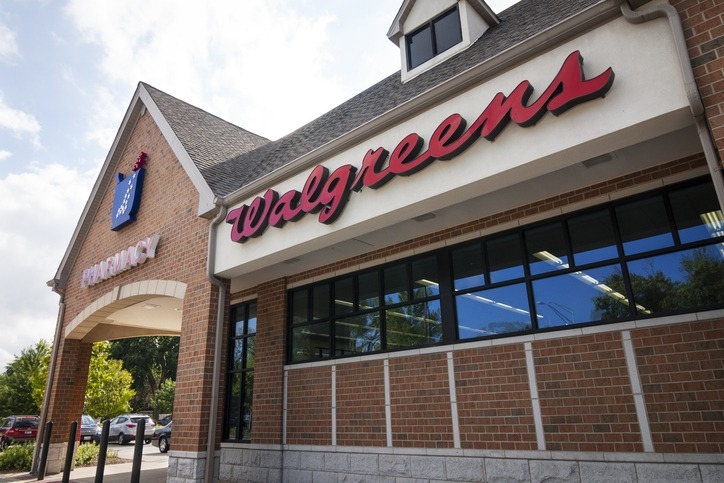The Scoop: Walgreens makes fiery statement after settling $300M opioid case


Arlington Heights, IL, USA – September 2, 2013: Exterior of a Walgreens drug store on a summer day
Walgreens has agreed to pay $300 million, plus interest, to settle allegations from U.S. prosecutors that it illegally filled millions of invalid opioid prescriptions.
Despite agreeing to the payout, the company “strongly disagrees with the government’s legal theory and admits no liability,” spokesperson Fraser Engerman told Reuters.
The statement also doubled down on the company’s trust in its pharmacists: “Our pharmacists are dedicated healthcare professionals who care deeply about patient safety and continue to play a critical role in providing education and resources to help combat opioid misuse and abuse across our country.”
This statement creates a notable cognitive dissonance as Walgreens is simultaneously paying a significant settlement while denying wrongdoing. But it’s necessary given the company’s need to protect its image, and brand value, at a time of tremendous change.
Beyond the company’s value plunging about 50% over the past year, per the Reuters report, Walgreens accepted an acquisition deal by Sycamore Partners in March. That makes restoring confidence internally and externally crucial to stabilizing its brand and business.
Why it matters: For PR and comms pros, there’s a big takeaway here: When a brand’s frontline workers are the brand, you have to protect their reputation fiercely, even in the middle of a legal settlement.
The company’s “we’ll pay it but we’re not at fault and our team is strong” messaging may feel like a contradiction, but it’s a deliberate move.
If the public loses confidence in the professionalism of Walgreens’ pharmacists, it could spiral into an even bigger problem beyond the stock hits it already experienced. Also, when a company is about to go through major changes like a buyout, crisis messaging needs to set the stage for a comeback story.
Good crisis comms isn’t just about surviving the bad headlines. It’s about helping the next chapter start on stronger ground.
Editor’s Top Reads
- The Academy of Motion Picture Arts and Sciences updated its rules to formally address artificial intelligence in filmmaking for the first time. New guidelines state that AI use “neither help(s) nor harm(s) the chances of achieving a nomination” for an Oscar, with a slight preference for projects where “a human was at the heart of the creative authorship.” The Academy also chose not to require filmmakers to disclose AI use and strengthened its public communications policy, banning any disparagement of filmmaking techniques, including on social media, by its members, the New York Times reported. The Academy’s message is clear: it accepts AI’s growing role and is working to protect itself and filmmakers from criticism as the technology becomes unavoidable. But while the Academy may silence critics within its own ranks, it can’t control how audiences will respond. The demand for transparency around AI is growing louder, as we’ve seen with recent pushback over Oscar winners such as “The Brutalist.” For communicators and PR teams, even if disclosure isn’t mandatory, it may soon become an expectation.
- Bill Owens’ resignation from “60 Minutes” signals a turbulent moment for CBS News. Owens, who has led the program since 2019, wrote a letter to staff saying that “over the past months, it has become clear that I would not be allowed to run the show as I have always run it, to make independent decisions based on what was right for “60 Minutes,” right for the audience.” In his farewell address, obtained by the Times, he warned that new layers of corporate oversight created “a really slippery slope.” Traditionally seen as a bastion of neutrality, “60 Minutes” has now lost that reputation – largely due to criticism from the Trump administration. As questions swirl about the show’s editorial independence, brands need to think twice before pitching “60 Minutes.” For brands, any perception that corporate or political pressure is shaping coverage could create new reputational risks at a time when authenticity is critical. Owens’ exit throws a harsh spotlight on cracks behind the scenes, raising doubts about the quality of segments and the news judgment behind them. Getting too close to a program losing public trust could end up costing far more than it’s worth. This isn’t a call to avoid “60 Minutes” entirely, but if you’re pitching anything that even brushes politics, proceed carefully.
- Toys “R” Us is teaming up with Story Kitchen to develop its first-ever live-action movie. Still in early development, the film aims to capture the sense of wonder and imagination that made the toy store a childhood staple for generations, Variety reports. The story noted that the film will channel the tone and ambition of box office hits like “Night at the Museum” and “Barbie.” From a PR perspective, it’s a smart play on nostalgia – positioning the film not just as a project announcement but as a cultural moment that taps into emotional storytelling. It also comes at a pivotal time for the brand: after filing for bankruptcy and closing its stores, Toys “R” Us announced plans to rebuild physical stores. To find success, it will also need to build up its emotional connection with consumers. Story Kitchen co-founders Dmitri M. Johnson and Mike Goldberg called the film a tribute to the “spirit of adventure, creativity and nostalgia” the brand represents. As we’ve seen with “Barbie” and “Lego” branded movies in the past, film can be a powerful way not just to earn media attention, but to rekindle brand love.
Casey Weldon is a reporter for PR Daily. Follow him on LinkedIn.